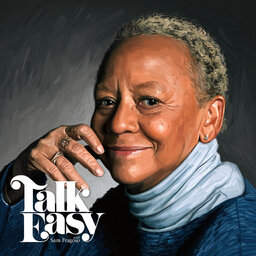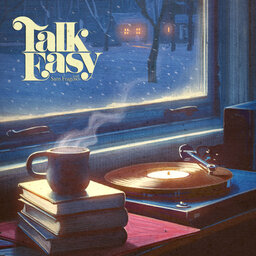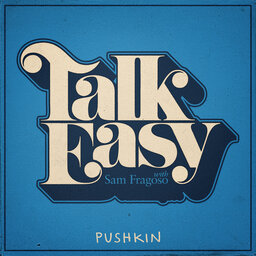A Human Conversation with Writer George Saunders
Last fall, George Saunders published Liberation Day, his first short-story collection in nine years. This week, we return to our conversation with the beloved author.
At the top, we discuss his process creating the book (3:40), the influence of Chekhov and Gogol (4:56), and a timely passage on democracy from “Love Letter” (8:35). Then, we unpack how he builds stories (13:30), a guiding philosophy from our first talk (14:58), and an excerpt from the titular story, “Liberation Day” (21:30).
On the back-half, we talk about the power of revision through “Elliott Spencer” (27:40), the seeds of the book’s moving final story, “My House” (36:34), the ‘failures in compassion’ it reveals (40:50), Saunders’ enduring relationship with his wife (45:08), and how he hopes to continue surprising himself as a writer, at 63 (48:40).
In 1 playlist(s)
Talk Easy with Sam Fragoso
Talk Easy with Sam Fragoso is a weekly series of intimate conversations with artists, activists, and…Social links
Follow podcast
Recent clips

The Year of Actor Sebastian Stan (‘The Apprentice’)
1:16:35

Remembering Poet Nikki Giovanni
44:21

Talk Easy in 2024: A Mixtape
58:40
 Talk Easy with Sam Fragoso
Talk Easy with Sam Fragoso